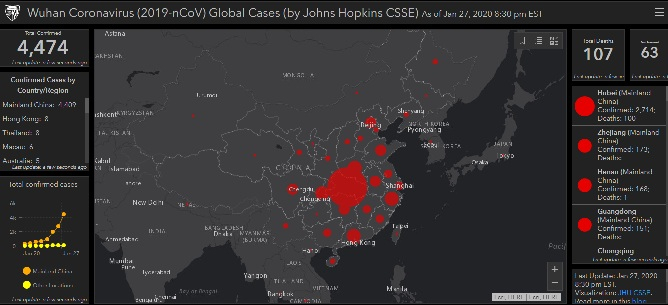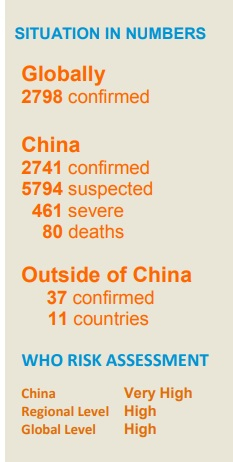The World Health Organization, in the midst of criticism for underrating the risk factor from the fast spreading Wuhan Coronavirus, has finally moved to rate the risk at High and acknowledged it as a global outbreak.
In an apologetic note, the Geneva-based agency said its Sunday report on the risk as "very high in China, high at the regional level and high at the global level," was incorrect and stands corrected now. However, the High risk at global level indicates the serious situation the world is facing and short of declaring it as a global health emergency.
If declared a public health emergency of international concern, it would mean the worst outbreak at global level and brings in a concerted global to deal with the outbreak. Meanwhile, WHO chief Tedros Adhanom Ghebreyesus, who is visiting China currently to discuss with the Chinese authorities to contain the outbreak did not make any statement officially about the outcome of his visit.

Earlier at a press briefing in Geneva, Tedros said that the global risk from the outbreak was "high" "but it has not yet become a global health emergency. It may yet become one. WHO's risk assessment is that the outbreak is a very high risk in China, and a high risk regionally and globally."

WHO said that the mistake made in three of its situation reports had been an "error in the wording." Otherwise, in its latest Situation Report - 7 on the new coronavirus 2019-nCoV, it said globally 2,798 cases have been confirmed, with China figure at 2,741, 5,794 suspected and 461 of them categorized as severe. So far, 80 deaths have been confirmed.
Among the 37 cases identified outside of China, 28 have been diagnosed with symptoms, 36 cases had travel history to China, of whom 34 had travel history in Wuhan city, or had an epidemiological link to a confirmed case with travel history to Wuhan, said the agency.
The global health agency has been under criticism during the 2009 deadly H1N1 swine flu pandemic for its flip-flop on the wording of describing the pandemic, sparking panic-buying of vaccines.
In 2014 too, the WHO dragged its feet downplaying the severity of the Ebola epidemic that claimed 11,300 lives in three West Africa countries for over two years.








